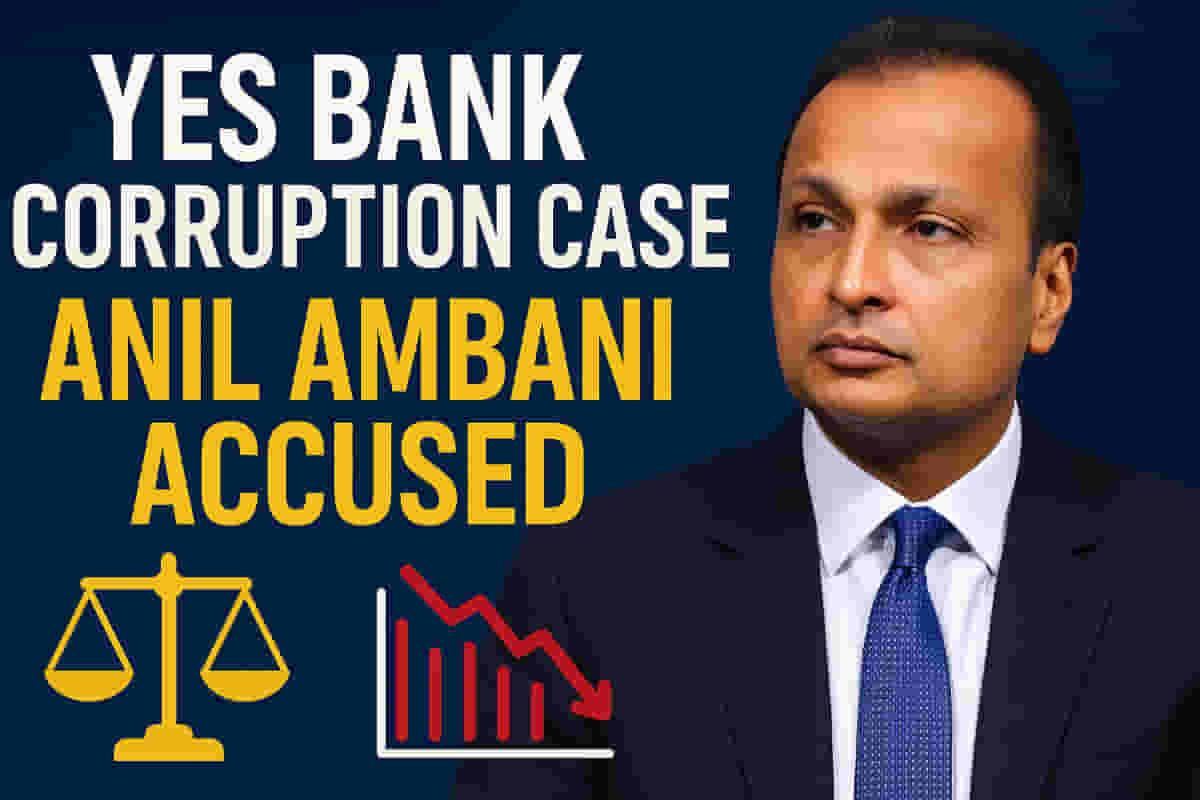CBI Accuses Anil Ambani of Rs 2,796 Crore Fraud in Yes Bank Corruption Case
Banking/Finance
|
Updated on 01 Nov 2025, 02:02 am
Reviewed By
Aditi Singh | Whalesbook News Team
Short Description :

▶
Stocks Mentioned :
Detailed Coverage :
The Central Bureau of Investigation (CBI) has formally accused industrialist Anil Ambani in a corruption case involving Yes Bank. The agency's chargesheet alleges that Anil Ambani approved favourable terms for investments in his companies by Yes Bank, resulting in a loss of Rs 2,796.77 crore to the bank. These investments were made in Non-Convertible Debentures (NCDs) and Commercial Papers (CPs) issued by companies within the Anil Dhirubhai Ambani Group (ADAG). Investigators claim that between 2017 and 2019, Yes Bank invested heavily in Reliance Home Finance Ltd (RHFL) and Reliance Commercial Finance Ltd (RCFL), both part of ADAG. By late 2019, these investments became non-performing, leaving Yes Bank with unpaid dues exceeding Rs 3,300 crore.
CBI alleges a 'quid pro quo' arrangement where, around the same period, RHFL and RCFL disbursed multiple loans to companies owned by Rana Kapoor's wife and daughters. These loans, totaling up to Rs 225 crore for some entities, were allegedly sanctioned without proper field verification or due diligence. The chargesheet also points to close coordination between Kapoor and Ambani, including private meetings and subsequent instructions for approving ADAG group proposals. Furthermore, Anil Ambani is accused of misusing Reliance Nippon Mutual Fund by holding unauthorized meetings with top executives to influence investment decisions. Rana Kapoor allegedly failed to disclose his family's receipt of loans from ADAG companies to the Yes Bank board.
Impact This development can significantly impact investor sentiment towards Yes Bank and other entities associated with Anil Ambani. It highlights corporate governance risks and potential regulatory scrutiny, which could lead to stock price volatility and affect the broader financial sector. Rating: 7/10.
Difficult Terms: CBI (Central Bureau of Investigation): India's premier investigating agency for criminal cases. Chargesheet: A formal document detailing charges filed by investigators against an accused. Non-Convertible Debentures (NCDs): Debt instruments that cannot be converted into shares and must be repaid with interest. Commercial Papers (CPs): Short-term, unsecured debt issued by corporations. Quid Pro Quo: A Latin term meaning 'something for something,' indicating an exchange of favours. ADAG (Anil Dhirubhai Ambani Group): A conglomerate of companies led by Anil Ambani. Non-performing investments: Investments that fail to generate income or are unlikely to be repaid. Field verification: On-site inspection to confirm information. Due diligence: Investigation to assess risks before a transaction. Shell companies: Fictitious companies often used for illegal financial activities. SEBI (Securities and Exchange Board of India): The regulator of India's securities market. AT-1 bonds (Additional Tier-1 bonds): High-risk debt instruments issued by banks.
More from Banking/Finance

Banking/Finance
SEBI is forcing a nifty bank shake-up: Are PNB and BoB the new ‘must-owns’?
Latest News

Auto
Suzuki and Honda aren’t sure India is ready for small EVs. Here’s why.

Brokerage Reports
Stocks to buy: Raja Venkatraman's top picks for 4 November

Mutual Funds
Quantum Mutual Fund stages a comeback with a new CEO and revamped strategies; eyes sustainable growth

Tech
Why Pine Labs’ head believes Ebitda is a better measure of the company’s value

Industrial Goods/Services
India’s Warren Buffett just made 2 rare moves: What he’s buying (and selling)

Startups/VC
a16z pauses its famed TxO Fund for underserved founders, lays off staff
Renewables Sector

Renewables
Brookfield lines up $12 bn for green energy in Andhra as it eyes $100 bn India expansion by 2030
Energy Sector

Energy
India's green power pipeline had become clogged. A mega clean-up is on cards.
Renewables Sector

Brookfield lines up $12 bn for green energy in Andhra as it eyes $100 bn India expansion by 2030
Energy Sector
